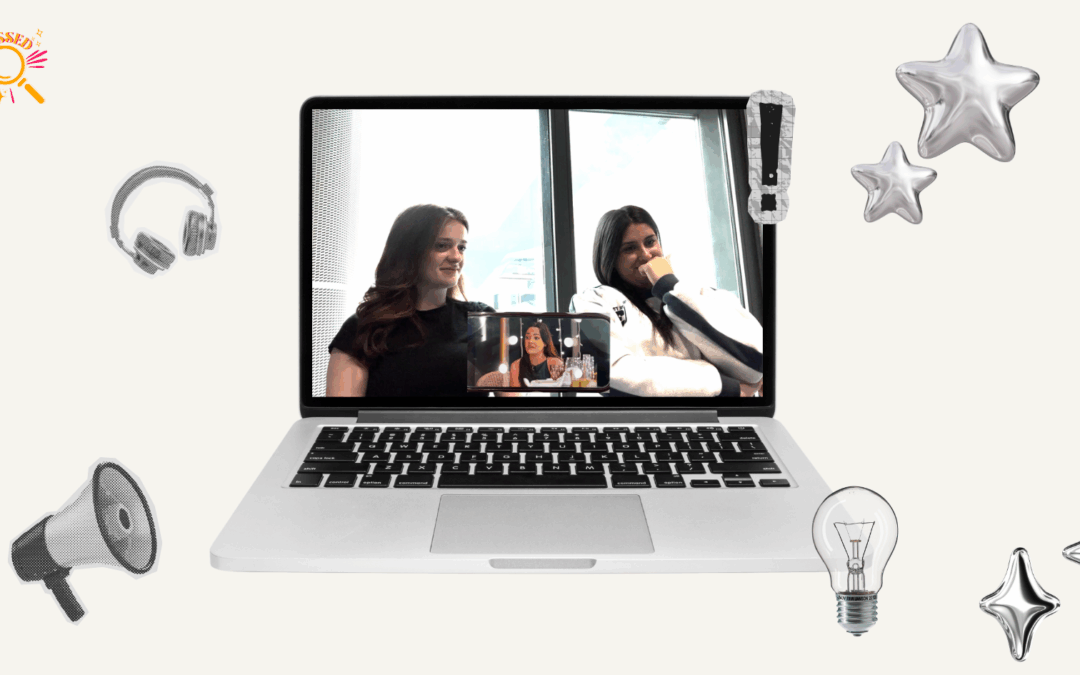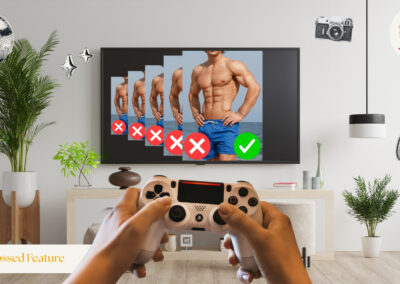With Love Island 2025 rumoured to be on its way, our very own reality TV addict Marianne catches up with a psychologist to dissect her hatred for the show.
I hate Love Island, I’ve also never actually properly watched it, but still I hate it. And not for all the cliché reasons like it’s bad for body image or it’s misogynistic- although I don’t dispute that they’re real issues. I hate it because I know if I watched it I would think mean thoughts. For whatever reason I know that it will bring out a judgemental, unreasonable version of me which I don’t particularly enjoy, nor do I want to become six or seven nights a week. I love reality tv, like really love it. Made in Chelsea, Keeping up with the Kardashians, even newer shows like Married to the Game and At Home With The Stallone’s, I’ve watched them all. And sure, some of that constant consumption is a level of hate watching.
*If you aren’t quite as judgemental as me, hate watching is defined by the Oxford Dictionary as “the activity of watching a television programme for the sake of the enjoyment derived from mocking or criticising it.” Also known as my Saturday night. Joking! Kind of.
Ultimately, my point is that for some reason, nothing makes me hate humanity more than the small clips I see of Love Island pop up on my TikTok. Part of me wonders if it stems from jealousy, maybe I am intimidated by their confidence and perfectly sculpted torsos. Or, maybe it’s because I’m genuinely not sure we should see people like that ‘winning’. I know it’s a sweeping statement, but to me it feels like the casting directors have got together all of the meanest and prettiest people from school, and stuck them on an island to flirt their way to the top. And I’m certain some of them are kind, grounded and normal people, but surely being on a show like that will turn you b**chy, even if that’s not your nature.
When I was younger, my mum would always tell me that people who were nasty would peak in secondary school, and probably end up regretting their actions later in life when they are working a job they hate, surrounded by people who made the same mistakes. But to me, Love Island feels like the perfect ‘get out of jail’ for those people, because as far as I can see, you get picked for being outspoken, and beautiful.
So I choose to not watch, because I know I’ll judge them. I’ll laugh with my friends about how ridiculous it is that they are so desperate for fame they sign themselves up for a show which has caused so much controversy. I’ll wonder why these women are chasing men who they met two days ago, and what on earth their parents must think. I’ll ask myself how many times these men have applied for the show, and what they can really get from it- because I’m guessing a PLT collaboration isn’t on the cards? Basically, I’ll judge and I’ll judge and I’ll judge, and I don’t want to do that, so instead I stick to my classic comfort show Keeping Up With The Kardashians, and let the rest of the world watch Love Island.
Then, when people ask me why I don’t watch, I’ll insist it’s because I don’t want to dedicate the time to it; “six days a week is a big commitment” I’ll protest, and at the same time I’ll secretly wonder if I’d actually enjoy it if I just gave it a go.
Sarah Shaw, a high intensity therapist from the NHS, assured me that my feelings towards Love Island aren’t actually that unusual.
“The reason shows like this can bring out a deeply judgemental side in us is because of a mix of things- snap judgements, social conditioning and maybe even a bit of projection. As well as class bias, stereotyping and moral judgements, which whilst aren’t ideal, are completely normal. Bare in mind the production team wants that sort of reaction from us- they know what they’re doing.
“In reality, Love Island holds up a mirror, but a distorted one. It reflects a lot of what already exists in our culture: the obsession with appearance, status, hookup culture, and performative relationships. It’s a product of a society that often prizes surface over substance, and it amplifies what people already value or fantasise about.”
Sarah says that it isn’t only me who has a serious addiction to ‘hate watching’ TV. Phew, I guess?
“Hate watching is a real thing and it’s not uncommon. There are loads of different reasons and motivations. Some reasons may seem a little contradictory but overall, I’d identify the most common one as what we call entertainment in criticism, viewers might enjoy mocking or criticising the show, it’s fun for them to point out bad editing, ridiculous storylines or contestant behaviour we find odd or amusing.
“We also may have liked earlier seasons or the concept, and we keep watching, hoping it’ll get better. Sometimes a show is so hyped (or hated) that people watch just to see what the fuss is about. And very often, it’s just because we find it comfortingly bad.”
I was determined to find out if there was a world where I could change my negative feelings towards Love Island, and consume reality tv more healthily. Sarah tells me there is:
“We can consume shows like Love Island in a healthy way, it’s supposed to be fun, so enjoy it. But it takes some self-awareness and critical thinking.
“Watch with a critical eye, instead of just absorbing everything at face value, remain mindful and ask questions, debate with your friends, please think about what is being edited out. What stereotypes are being pushed? How might this be shaping how I think about relationships, beauty, or success?
“And try to balance it out. Don’t allow your perception to be shaped by one narrow lens. If you’re watching a lot of reality TV, it helps to also consume content that shows more diverse, realistic, or healthy portrayals of people and relationships.”
Some recommendations she had for more diverse reality tv shows include Married at First Sight, and even Big Brother. Don’t know about anyone else but I’m buzzing to hear that these shows aren’t just therapist approved but lowkey recommended- you’re telling me these cinematic masterpieces could actually improve my mental health?
Sarah says “I recommend watching with friends. Discussing shows like Love Island can be an excellent way to keep perspective, especially if you’re calling out the toxic stuff or laughing at the absurdity together. It also can put things into perspective when you start to get a little too judgemental.”
Sarah explains it’s really important we don’t sweep all love island contestants with the same brush. (whoops). “Contestants are often portrayed as shallow, fame-hungry, overly dramatic, or obsessed with looks. Whether that’s actually true or just clever editing, viewers can latch onto those traits and assume all participants fit a certain ‘type’.”
*Major whoops.
Sarah says “We can often get a sense of superiority- watching from a moral or intellectual high ground. Dismissing contestants as ‘the worst kind of people’ can also be a way for viewers to assert their own identity, by saying ‘I’m not like them’.
“But the truth is we can never fully know why a person has decided to go on a show like this, it could be for validation, career opportunities or genuine love. We must be careful not to jump to conclusions and remember that real humans are at the heart of this.”
She concludes: “Media is supposed to be fun, not make you feel inadequate. Feelings and emotions are normal. Yes, even the feelings we identify as ‘bad’- it’s normal to watch reality TV and feel jealous, disgusted, angry, envious or sad. But if you start feeling worse about yourself, your body, love life or lifestyle, that is probably a sign to take a break.”
So, whilst I kind of feel like the worst person in the world for thinking such negative things about Love Island. Well actually, second worst to people who think like me but then also tweet about it- I think we can all agree they’re the true problem. I also feel weirdly comforted that I’m not the only one. So, even if I do end up hate-watching it, I think the 2025 season might be the beginning of my Love Island era. Watching- not competing, definitely don’t have the abs for that!
For more Love Island content, check out episode 1 of the Unglossed podcast.











